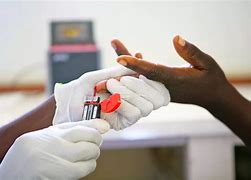Staff Reporter
The INTEGRATE-Catalyzing Integrated Sustainable Subnational HIV Biomedical Prevention Program has successfully reached a major milestone, with over 150,000 men and boys undergoing Voluntary Medical Male Circumcision (VMMC) as part of a broader effort to decentralize HIV prevention services in Zimbabwe.
The program, which emphasizes the importance of locally owned, sustainable solutions, has been crucial in strengthening Zimbabwe's fight against HIV and AIDS.
The INTERGRATE initiative, which is set to conclude by the end of November 2024, was launched in November 2020 and designed with the goal of enhancing decentralized, biomedical HIV prevention services in the country. It is backed by funding from the Gates Foundation and implemented by the Ministry of Health and Child Care (MoHCC), along with technical support from Population Services International (PSI) and Population Solutions for Health (PSH).
Dr. Aspect Maunganidze, Permanent Secretary in the Ministry of Health and Child Care, underscored the program’s critical role in Zimbabwe’s ongoing HIV and AIDS response.
“This event represents a very significant milestone in our ongoing efforts to combat HIV and AIDS in Zimbabwe and bring us closer to our goal of ending AIDS by 2030. Over the past few years, we have witnessed remarkable progress in our fight against HIV,” said Dr. Maunganidze.
Zimbabwe’s success in meeting the UNAIDS 95-95-95 targets reflects the effectiveness of the program. Dr. Maunganidze attributed much of the country’s progress to the strengthening of biomedical HIV prevention services, an essential component of Zimbabwe’s journey toward epidemic control.
The INTEGRATE initiative was aligned with Zimbabwe’s VMMC Strategic Implementation Plan (2019-2021), with the aim of shifting from costly, unsustainable programming to more integrated, cost-effective solutions. By successfully applying the Sustainability Transition Implementation Plan (STIP), the project has contributed to integrating the VMMC program into the routine operations of the Ministry of Health and Child Care.
"By executing the Sustainability Transition Implementation Plan (STIP), INTEGRATE has made invaluable contributions to integrating the VMMC program into the routine activities of the Ministry of Health and Child Care,” noted Dr. Maunganidze. The program has also focused on decentralizing services to primary healthcare facilities, with a goal of ensuring long-term impact by training healthcare workers in HIV prevention and treatment. Notably, a revised nursing curriculum that includes HIV prevention will graduate its first cohort in 2025.
The INTEGRATE project has also built capacity within the country’s health system, providing training for district health executives in areas such as VMMC program planning, financial management, and leadership. This support has empowered local officials to make more informed decisions and improve the efficiency of service delivery.
Precious Chakasikwa, Board Chairperson at PSH, reflected on the progress achieved: “From the inception of this project in November 2020, we aimed to support improved Government-led subnational health system performance. Our mission was to facilitate the transition from vertical, partner-led VMMC programming to locally driven, integrated biomedical prevention efforts. I am delighted to say we have surpassed expectations on all fronts.”
Key lessons from the program were highlighted by Karin Hatzold, Director of HIV/TB and Hepatitis at PSI, who emphasized the challenge of balancing rapid expansion with long-term sustainability: “There is a balance between achieving rapid expansion of VMMC coverage for immediate impact on HIV incidence and building long-term sustainability by integrating services into broader health systems. INTEGRATE has successfully demonstrated how to achieve both.”
The Gates Foundation’s contribution to the program was also acknowledged, particularly for its innovative approach to financing and the use of digital solutions to improve efficiency. Maya Sundaram, Senior Program Officer for HIV Prevention and Testing at the Gates Foundation, praised the program’s outcomes: “The successes of INTEGRATE have not only advanced Zimbabwe’s HIV prevention goals but also demonstrated sustainable models for health systems strengthening.”
The Gates Foundation’s longstanding commitment to global HIV prevention and treatment, including significant investments in Zimbabwe, has played a pivotal role in scaling up sustainable, locally owned HIV prevention initiatives. Through its support, Zimbabwe has made substantial progress in its HIV response, demonstrating the effectiveness of integrating biomedical prevention strategies like VMMC into the broader health system.




